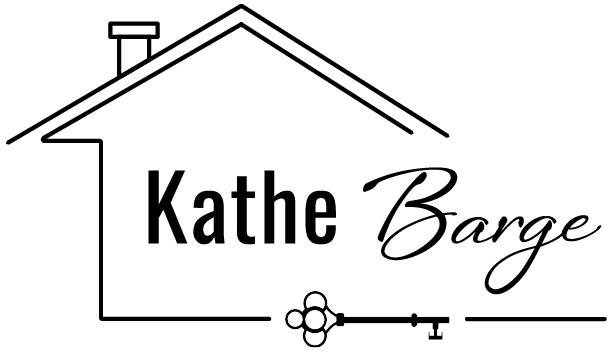by Kathe Barge | May 4, 2017 | Blog, Buyers, Contracts, Listings, Market Trends, Real Estate
We have found a new home that we want to buy, but the seller can’t close until late this year. Should we put our current home on the market now or wait until we get closer to the closing date for our new home?
We are currently experiencing an exceptionally strong spring market! I have not seen a better time to sell in recent years! So now would be an excellent time to list your home for sale. However, if you do, you need to expect that your buyer is unlikely to wait for many months to close. Rate locks are generally only good for 60 days, so any closing beyond that exposes the buyer to the possibility of interest rate hikes. Additionally, this time of year most buyers are looking to occupy their new homes in time for school to start in the fall. So if you list your home now, you need to be prepared for the possibility of an interim move to a short-term rental. You may view this as the safest option because if your home does sell quickly requiring a move to an interim rental, you will at least know that you will not be stuck carrying two homes at one time!
Your other option is to wait until closer to the closing on your new home to put your current home on the market. This would certainly be the more convenient option – you would not have to find an interim rental property and store your personal effects. However, while homes do sell in the fall market, it does not have nearly the momentum that the spring market has. If you choose to wait and list your home in the fall, it is possible that you will need to carry two houses until the spring 2018 market begins. I also don’t have a crystal ball to predict whether the spring 2018 market will have the same momentum that the current market has.
In the end your decision will need to be based on which risk factor concerns you more. Would you be more unhappy if you had to spend interim months in a rental property because a buyer this spring needs your house now, or would you be more unhappy if you had to carry the cost of owning two homes for several months? The answer to this question should guide you as to when is the appropriate time to list your home for sale.
[contact-form-7 id="115311" title="Get More Information Form"]
by Kathe Barge | Oct 21, 2016 | Blog, Contracts, For Sale By Owner, Inspections, Mortgage, Pittsburgh, Real Estate, Sellers, Sellers-Contracts, Sewickley, Sewickley Herald
Dear Kathe:
What assurances are there to a seller that if they enter into a contract to sell their home, it will actually close?
Reaching an agreement on the sale of your home is an important first step to getting your home closed. However, before a seller has any assurance that a home will actually close, several hurdles must be overcome. First, the inspections have to be completed. In most instances, the buyer has the right to terminate a transaction if they learn anything on the inspection that they are uncomfortable with, and in almost every instance, the buyer has the right to terminate if the seller does not agree to make the buyer’s requested repairs. So a seller has no assurances at all that their home will close until the inspection period is complete, which generally takes 21 days.
The same thinking would apply if the Agreement includes an appraisal contingency – until the appraisal is complete (which also takes 21-30 days), there is a risk that the home will fail to appraise and the transaction will not close.
If the buyer has a mortgage contingency, then there is a risk until a “clean” commitment letter is received from the lender that the buyer will not get their loan approved, in which case the transaction will not close. Usually it takes about 45 days from the date of agreement to know with any certainty that the buyer has received a loan commitment.
There is also the rare instance where a buyer never provides the contractually specified deposit money or second deposit money. This is a breach of agreement and if this happens, it’s reasonably unlikely that the buyer will cure that breach and close.
Finally, very rarely there are buyers who complete all of the steps in the process and just refuse to close. In those instances, the seller is often entitled to the deposit money, but that may seem like a small consolation prize when their home is empty and back on the market.
Working with a skilled real estate professional will help you to manage the risks and move toward a successful closing. So while the short answer is that there is never a guarantee until the home actually closes, with proper management of the details the risk to a seller of moving out and leaving behind an empty home can be minimized.
by Kathe Barge | Mar 10, 2016 | Blog, Buyers, Contracts, Inspections, Market Trends, Marketing, Mortgage, Pittsburgh, Real Estate, Sewickley, Sewickley Herald
Continuing from last week:
Dear Kathe,
We’re first time home buyers – where do we begin?
If you’re following along each week, by now you have been pre-approved for a loan, selected a Buyer’s Agent, looked at and selected a Property, made an offer and are negotiating for your new home!
The process of negotiating for a home is one of give and take. Your Buyer’s Agent should be able to explain negotiating norms in the areas in which you are interested. For example, in our North Hills communities, Sellers price their homes more tightly and they generally sell in the range of 98% of list price. If you bring an offer at 90% of list price, you may not even get a response. In Sewickley, there is often a bit more flexibility. Keep in mind, however, that price isn’t the only concern. Closing date is important – if you can’t get the date you want, you may need to pay for temporary housing and storage of your things. Inclusions are important – if a Seller starts removing things from the home, they are things you may need to spend money to replace and this may affect what you are willing to pay for the home. You must keep all of this in mind as you try to negotiate to a final Agreement to purchase the home.
Once you and the seller reach a deal, both parties sign the Agreement and you are officially “under agreement.” At this point, the contract takes over and specifies exactly what you must do next. Your Buyer’s Agent should lay all of this out for you in easy-to-use timelines. This is absolutely critical – if you miss deadlines, you could lose your deposit money in some scenarios. You generally have 1-2 weeks to apply for a mortgage. Do not delay. The lending process is quite complex these days – there will be a lot of detailed information requested – this will take you time to compile.
At the exact same time that you are applying for your mortgage, you will also be inspecting your new home (yes, it will be very busy for a few weeks). More on inspections next week…





